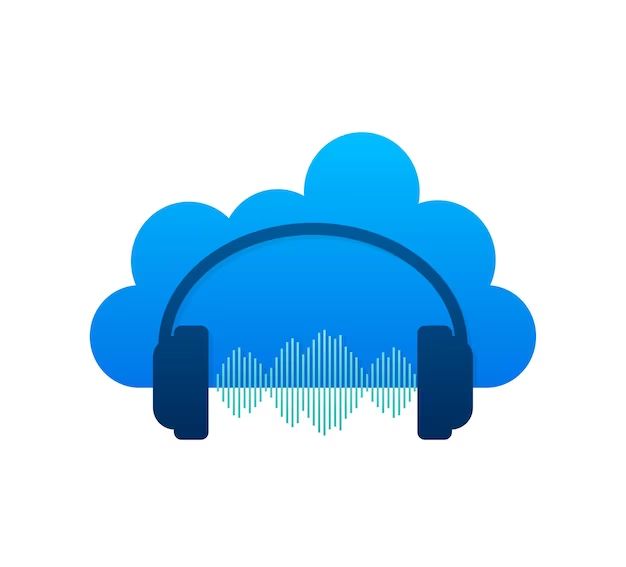With streaming music services like Apple Music, Spotify, and Pandora now ubiquitous, many music lovers have said goodbye to large physical music collections in favor of access to millions of songs in the cloud. Apple’s iCloud music library is a cloud locker service that lets you store your personal music library online and stream songs from it on all your devices. With storage limits and mobile data costs a consideration for many, a common question is: does iCloud music use data?
Quick Answers
Yes, streaming music from iCloud does use mobile data. The amount used depends on audio quality, with standard quality using up to 200MB per hour and high quality using up to 500MB per hour. Downloading songs for offline playback also uses data.
However, there are settings available to control data usage. Cellular data for iCloud music can be turned off to restrict streaming to WiFi. Songs can also be selectively downloaded for offline listening. Music purchased from Apple Music does not count towards data caps with many carriers.
How iCloud Music Library works
iCloud Music Library is Apple’s cloud locker service that lets you store your personal music collection on their servers. This includes music you’ve purchased from iTunes, ripped from CDs, or acquired from other sources. Here’s what iCloud Music Library does:
- Stores your music library online, making it accessible from all your devices logged into the same iCloud account.
- Automatically matches songs in your library to copies in the Apple Music catalog, making them available without needing to upload.
- Uses Apple Music’s DRM copy for matched songs so you can download multiple times.
- Uploads any songs that can’t be matched to Apple’s catalog.
- Lets you stream your music on demand so you don’t need to store it locally.
The key thing to understand is that unlike services like Spotify or Pandora that provide access to a library of songs, iCloud Music Library is primarily a cloud storage locker for songs you already own. It just happens to leverage Apple’s huge catalog to save upload time.
iCloud Music streaming uses data
Streaming songs on demand from iCloud Music Library does use your cellular data plan. It works just like streaming from Apple Music or other cloud music services.
How much data streaming uses depends primarily on the audio quality setting under Music > Settings > Audio Quality:
- Standard quality: Uses up to 200MB per hour
- High quality: Uses up to 500MB per hour
- Lossless: Uses over 1GB per hour
- Hi-Res Lossless: Can use over 5GB per hour
So streaming music from your iCloud library in standard quality would use about 8MB of data for a 4 minute song. At high quality, that would jump to around 20MB per song.
Keep in mind these are maximum values above what you should average in normal use. But it gives a rough idea of cellular data use.
Downloading songs uses data too
In addition to streaming, downloading songs for offline listening from iCloud Music Library also uses cellular data.
Apple doesn’t provide specific per song download data usage estimates. However, in testing, downloading a 4 minute 128kbps AAC music file used approximately 5MB of data. Larger high quality audio files will use even more.
So if you downloaded 10 songs for offline playback, you could easily use 50MB or more of data just on the downloads depending on audio quality.
Managing cellular data usage
If you want to minimize cellular data usage for iCloud music, here are a few tips:
- Turn off Cellular Data for iCloud Music under Settings.
- Connect to WiFi when possible to download songs.
- Selectively download just the songs you need for offline listening.
- Use a lower audio quality setting like Standard to stream over cellular.
- Toggle on the Data Saver mode under Music settings.
Turning off Cellular Data means your iCloud music will only stream and download when connected to WiFi. This prevents large data usage surprises when away from WiFi.
Selectively choosing which songs to make available offline can minimize the amount of music you need to download when not on WiFi.
Using Standard audio quality uses less data per song than High quality when streaming. You may not notice much difference on a small phone speaker.
The Data Saver mode prevents automatic downloads and streams higher bitrate songs at a lower quality to save data.
Zero data with Apple Music
If you subscribe to Apple Music, there’s a nice perk for owners of many iPhone, iPad, or Apple Watch models. Streaming and downloading from Apple Music won’t count against your cellular data plan with these carriers:
- AT&T
- T-Mobile/Sprint
- Verizon
So streaming endless playlists, radio stations, or saving albums for offline playback will stay free of data charges. Just note this applies to content directly within the Apple Music catalog, not your personal iCloud Music Library songs.
Music purchases don’t use data
One final perk is that downloading music you’ve purchased from the iTunes Store does not count against cellular data limits either. So feel free to buy that catchy new single on impulse without worrying about using up your data allotment.
Summary
To recap the key points on iCloud music data usage:
- Streaming from iCloud Music Library uses 200-500MB per hour of data depending on quality.
- Downloading songs for offline use also consumes data.
- Turn off cellular data, selectively download songs, use WiFi to manage data usage.
- Apple Music data is zero-rated with many carriers.
- Purchased iTunes music downloads don’t count against data.
So in summary – yes, iCloud music does use cellular data for streaming and downloads. But with some prudent settings and connection choices you can manage data usage and stay within your plan allowance.
